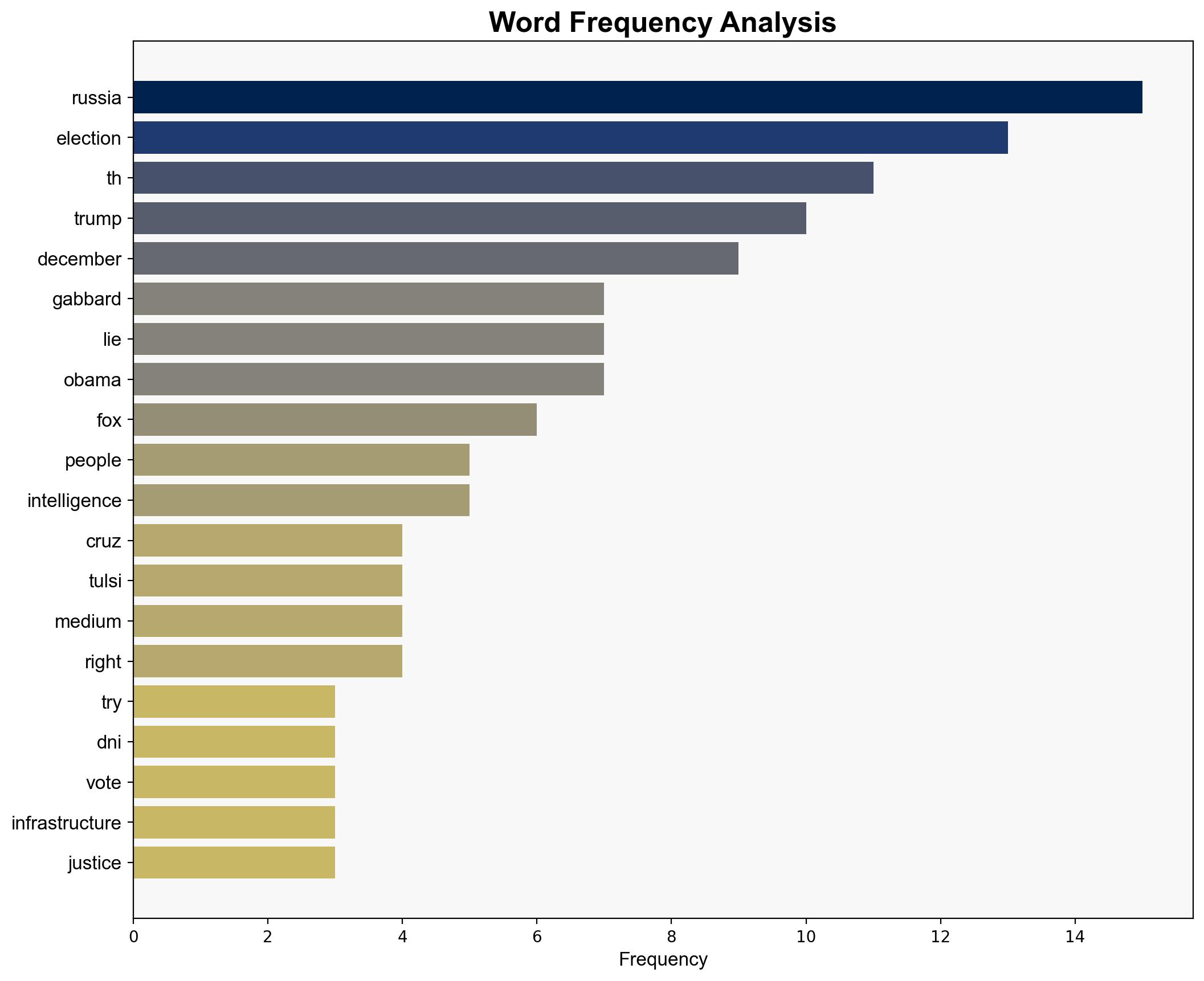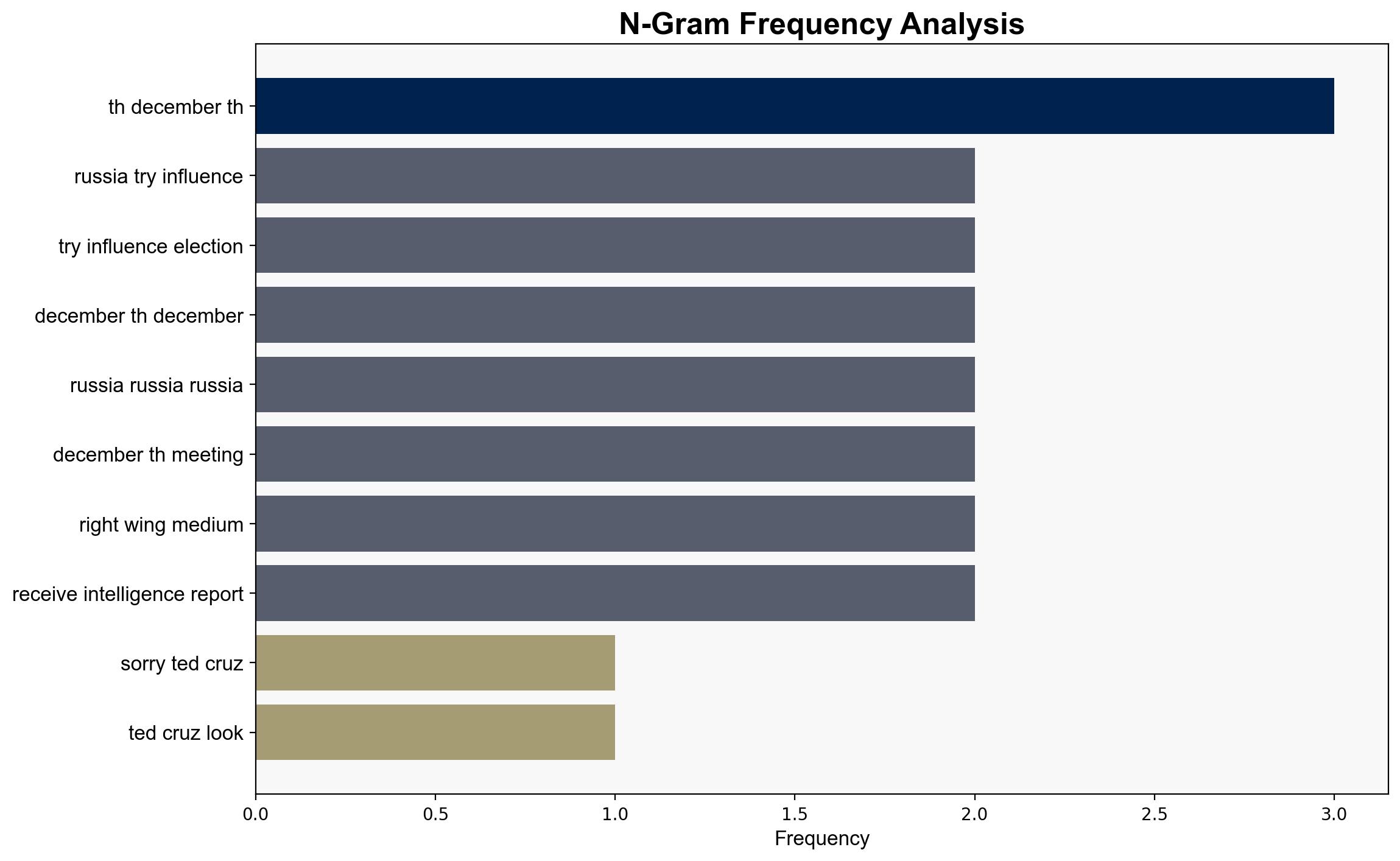Cancun Ted Compares Latest Obama Witch Hunt To Pearl Harbor – Crooksandliars.com
Published on: 2025-07-24
Intelligence Report: Cancun Ted Compares Latest Obama Witch Hunt To Pearl Harbor – Crooksandliars.com
1. BLUF (Bottom Line Up Front)
The most supported hypothesis is that the narrative presented by Ted Cruz and Tulsi Gabbard is primarily a political maneuver to galvanize support among certain voter bases by framing the investigation into Russian election interference as a partisan attack. Confidence level: Moderate. Recommended action: Monitor media narratives and public reactions to assess the impact on political polarization and election security discourse.
2. Competing Hypotheses
1. **Political Maneuvering Hypothesis**: Ted Cruz and Tulsi Gabbard are using the narrative of a “witch hunt” and comparisons to historical events like Pearl Harbor to rally their political base and distract from other controversies, such as the Epstein issue and Trump’s legal challenges.
2. **Legitimate Concerns Hypothesis**: Cruz and Gabbard genuinely believe there is a significant threat to democratic processes from within the government, viewing the investigations as an overreach or misuse of power, akin to a coup attempt.
Using ACH 2.0, the first hypothesis is better supported due to the lack of concrete evidence presented by Cruz and Gabbard to substantiate claims of a coup, and the historical pattern of using such narratives for political gain.
3. Key Assumptions and Red Flags
– **Assumptions**: The political maneuvering hypothesis assumes that Cruz and Gabbard are primarily motivated by political gain rather than genuine concern for democratic integrity.
– **Red Flags**: The lack of specific evidence supporting claims of a coup and the timing of these statements suggest potential bias or manipulation.
– **Blind Spots**: The analysis may overlook genuine concerns about governmental overreach if the focus remains solely on political motivations.
4. Implications and Strategic Risks
– **Political Polarization**: Continued use of inflammatory rhetoric could deepen divisions and undermine trust in democratic institutions.
– **Cybersecurity Risks**: Distractions from genuine election security issues may leave vulnerabilities unaddressed.
– **Geopolitical Tensions**: Mischaracterizing foreign interference as purely partisan could weaken international cooperation on cybersecurity.
5. Recommendations and Outlook
- Monitor media narratives for shifts in public perception and potential escalation in rhetoric.
- Engage in bipartisan efforts to strengthen election security measures.
- Scenario Projections:
- Best Case: Bipartisan consensus on election security reduces polarization.
- Worst Case: Increased political violence and erosion of democratic norms.
- Most Likely: Continued political rhetoric with limited impact on actual policy changes.
6. Key Individuals and Entities
Ted Cruz, Tulsi Gabbard, Donald Trump, James Clapper, Susan Rice, John Kerry, Andrew McCabe, Marco Rubio, Andrew McCarthy
7. Thematic Tags
national security threats, cybersecurity, political polarization, election integrity





